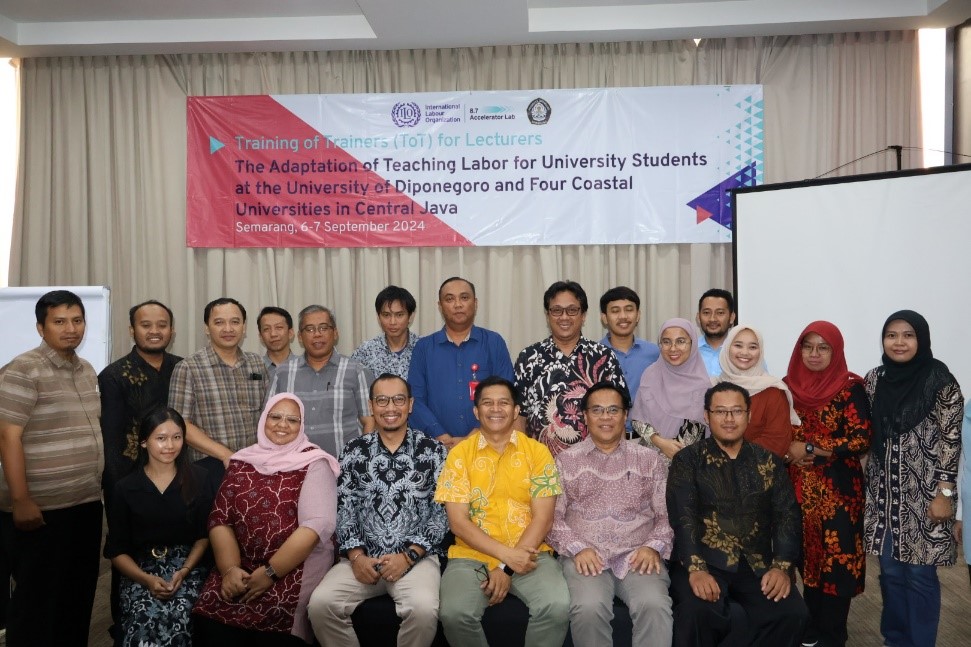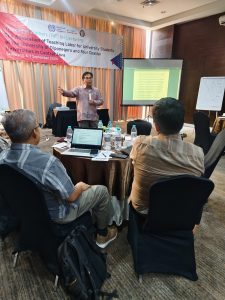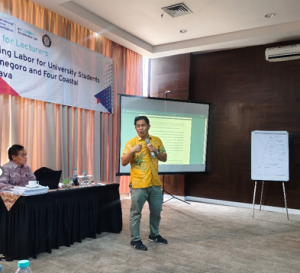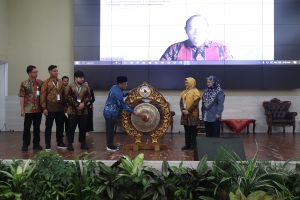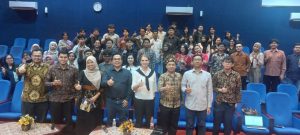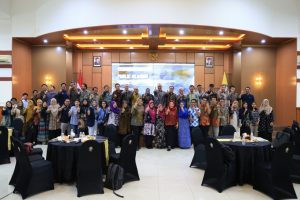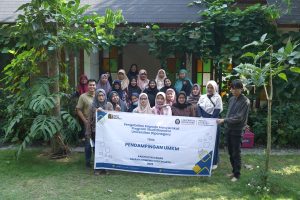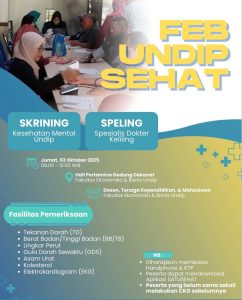[et_pb_section fb_built=”1″ admin_label=”section” _builder_version=”4.16″ global_colors_info=”{}” theme_builder_area=”post_content”][et_pb_row admin_label=”row” _builder_version=”4.16″ background_size=”initial” background_position=”top_left” background_repeat=”repeat” global_colors_info=”{}” theme_builder_area=”post_content”][et_pb_column type=”4_4″ _builder_version=”4.16″ custom_padding=”|||” global_colors_info=”{}” custom_padding__hover=”|||” theme_builder_area=”post_content”][et_pb_text admin_label=”Text” _builder_version=”4.27.2″ background_size=”initial” background_position=”top_left” background_repeat=”repeat” hover_enabled=”0″ global_colors_info=”{}” theme_builder_area=”post_content” sticky_enabled=”0″]
The ILO and Diponegoro University (UNDIP) recently signed a joint collaboration to support the ILO’s strategy to intensify efforts to achieve Target 8.7 of the Sustainable Development Goals (SDGs), which explicitly dedicate to combating forced labor and eliminating child labor. The ILO has established new forms of cooperation and engagement to address the root causes of forced labor, including with business stakeholders, including academic institutions. The ILO’s alliance with UNDIP follows the Memorandum of Understanding (MoU) previously signed with the Global Business Schools Network (GBSN) and the Geneva School of Economics and Management (GSEM) of the University of Geneva. These agreements demonstrate the ILO’s commitment to creating a global front against labor exploitation.
Prior to the joint collaboration, the ILO through its Accelerator Lab 8.7 (ACC Lab 8.7) program organized a series of workshops targeting business schools, including UNDIP. The new partnership is expected to enhance the knowledge of business students and their faculty members, including male and female lecturers, on forced labor in the fisheries sector. Recently, the ILO’s Accelerator Lab 8.7 adapted a teaching tool to promote decent work and the elimination of forced labour in the fishing industry based on the local context in Central Java. This teaching resource has been designed by consultants with input from lecturers and subject matter experts for use by lecturers at other business schools
This falls within the joint commitment of the International Labour Organization, the Geneva School of Economics and Management, and the Global Business Schools Network to support quality business school education on labour and human rights issues. This resource focuses on decent work and the elimination of forced labour in fishing, providing general information about the industry, macroeconomic data, and information on the labour challenges faced by workers in it. It presents practical examples from different countries and stakeholder perspectives as well as suggestions for contextualising the learning experience for different audiences.
The training activity was held at the Grand Dhika Hotel Semarang on 6 – 7 September. with the objectives including:
● Equip business lecturers with the skills and knowledge to adapt and implement labour teaching strategies.
● Ensuring the success of the program scale-up in four coastal universities in Central Java.
● Focus on delivering four main modules:
1. Introduction to Decent Work
2. Business and Human Rights Framework
3. Coastal Economy and Labor Rights
4. Practical Skills and Advocacy.
Target Participants: Participants of this ToT are 20 business lecturers from:
1. Faculty of Economics and Business, Diponegoro University
2. Pancasakti University, Tegal
3. Pekalongan University
4. Safin Pati University
Photo of Head of Economics Study Program Jaka Aminata Ph.D while delivering ILO seminar material
This training discusses the importance of decent work which is a fundamental problem for workers. In addition, it is also promoted that decent work practices and in accordance with human rights require an approach that includes practical skills training, effective advocacy, and active community involvement.
Photo of Mohamad Nour from the National Coordinator of ILO Jakarta presenting the material
Other activities such as workshops, other activities carried out include advocacy campaigns, project-based learning, empowering individuals and organizations to make positive changes. Some of these approaches aim to create more just, equal and sustainable workplaces and communities.
Advocacy in this case has several functions including:
1. Helping workers challenge barriers and increase access to dignified and respectful employment opportunities
2. Raising awareness of human rights among individuals, organizations or stakeholders as a powerful tool to make positive changes to workers’ lives.
[/et_pb_text][/et_pb_column][/et_pb_row][/et_pb_section]

